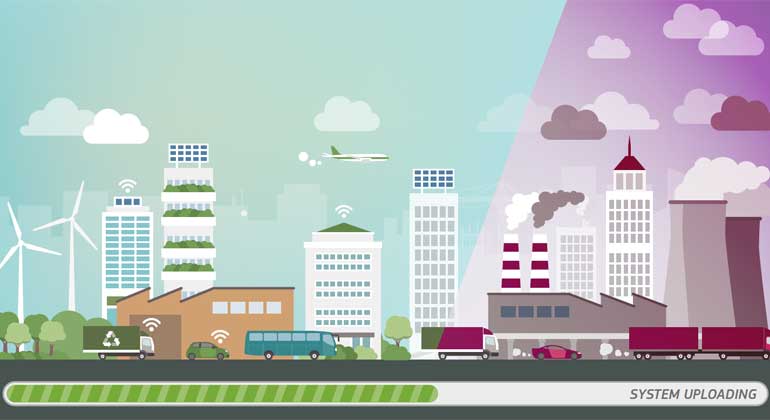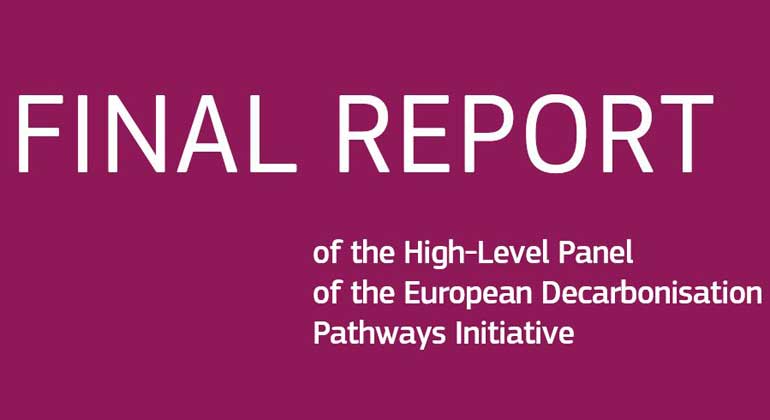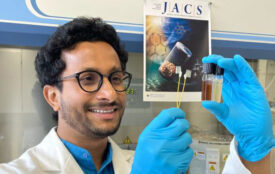A Greentech Race towards Climate Stabilization
European Expert Group Publishes Landmark Innovation Report
Zero-carbon solutions, i.e. technologies and lifestyles completely free of fossil-fuel use, must be the foci of European investments into research and innovation. Conventional low-emission options have very limited potential to contribute in time to avoiding dangerous global warming, an independent group of eminent experts concludes. By way of contrast, ambitious innovation programs can kick-start a greentech race to the top, while boosting the competitiveness of the European economies and securing our prosperity. The “High-Level Panel on Decarbonization Pathways” report is published today, together with the European Commission Communication Strategy for long-term EU greenhouse gas emission reductions, in the run-up to the UN climate summit (COP24) in Katowice, Poland.
“We can innovate ourselves out of the climate crisis,” said Hans Joachim Schellnhuber, who is chair of the High-Level Panel on Decarbonization Pathways established by the European Commission, Director Emeritus of the Potsdam Institute for Climate Impact Research, and member of the scientific academies of Germany, the US, and the Vatican. “But we need to take bold decisions and we need to take them quickly. European research policy should spend taxpayers’ money where the impact is greatest: on breakthroughs and social inventions rather than on subsidizing tip-toeing. My eight colleagues and I are proud to present a catalogue of hope, both for our climate and for our economy.”
“Climate action requires ambition”: Commissioner Moedas
The panel directly advises the EU Commissioner for Research, Science and Innovation, Carlos Moedas. “Climate action requires ambition,” said Moedas. “Nothing short of immediate action leading to net-zero emissions by 2050 will suffice. More and better focused research and innovation is a necessary condition to reach our long-term climate targets and maintain our standard of living.” The Panel’s report is relevant in particular for the orientation of the new EU Framework Programme for Research and innovation 2021-27 (Horizon Europe) with its proposed 100 billion budget.
Pursuing systemic approaches instead of financing isolated solutions is of great importance, Schellnhuber stressed. “Take energy: while power generation undoubtedly has to be shift to renewables, we also need to improve the design of grids, advance the storage infrastructure, and introduce smart household technologies. This is also crucial for the decarbonization of the transport sector. If clean power and intelligent networks were not introduced, electric cars would perversely run on coal that is still burned in dirty power plants. We hence need stringent sector coupling to make the overall transformation work. And we need to make careful use of digitalization and artificial intelligence to serve people and planet.”
Former coal regions can become “Transition Super-Labs”
The experts also propose to create what they call “Transition Super-Labs” (TSL), namely large-scale and integrated real-life demonstrators for an effective and just transition of entire regional economies from fossil to clean business. TSL shall be identified and guided by science and will be most relevant for areas in Europe that still heavily depend on coal mining, industrial agriculture or conventional logistics. They can be turned into model regions which, instead of being left behind in the next decades, become frontrunners in the emerging global cleantech competition. This is a race that the experts encourage the European Union to lead.
- Weblink to the final report of the High-Level Panel of the European Decarbonisation Pathways Initiative: https://ec.europa.eu/info/publications/final-report-high-level-panel-european-decarbonisation-pathways-initiative_en
- Weblink to more information of the European Commission on the report: https://ec.europa.eu/info/news/independent-experts-make-research-and-innovation-recommendations-achieving-emissions-goals-2018-nov-28_en
- Weblink to the press release of the European Commission on a strategic long-term vision for a carbon neutral Europe by 2050: https://www.pik-potsdam.de/news/press-releases/eu-kommission-beruft-spitzenberater-fuer-dekarbonisierung-unter-leitung-von-schellnhuber









